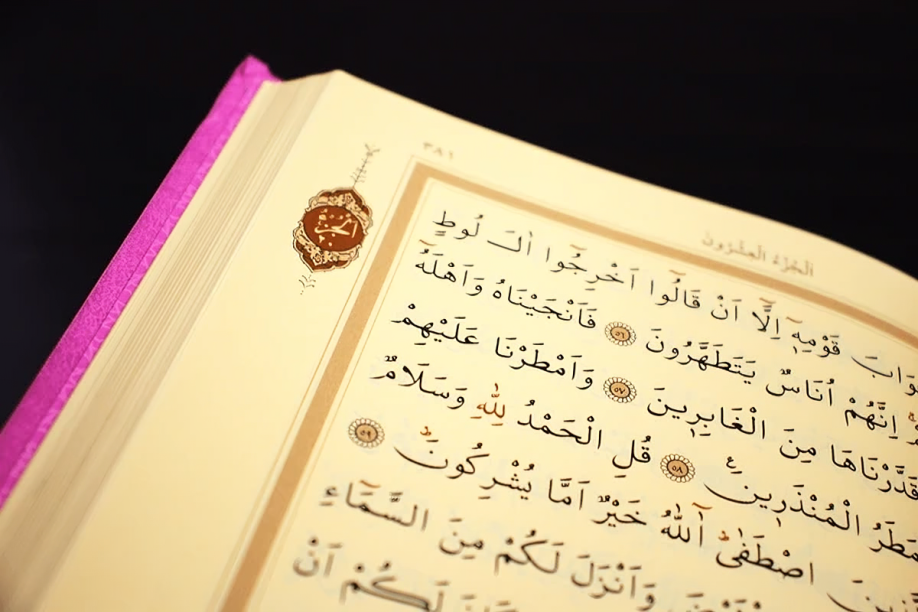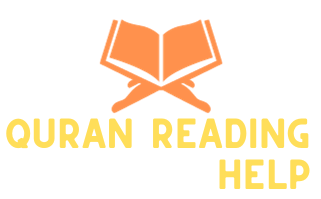| English | Standard Arabic | Translit | Egyptian Arabic | Translit |
| to be (not used in present tense) | كان – يكون (كون) | kaana – yakuunu (koon) | ” | kaan – yikuun (koon) |
| to do; to make | فعل – يفعل (فعل) | fa3ala – yaf3alu (fa3l) | عمل – يعمل | 3amal – yi3mil (3amal) |
| to work | عمل – يعمل (عمل) | 3amala – ya3milu (3amal) | اشتغل – يشتغل (سغل) | ištaġal – yištaġil (šuġl) |
| to bring, fetch | أحضر – يحضر (احضار) | aHDara – yuHDiru (iHDaar) | جاب – يجيب (جيبان) | gaab – yigiib (gayabaan) |
| to take | أخذ – يأخذ (أخذ) | axada – ya’xudu (axd) | خد – ياخد (اخد) | xad – yaaxud (axd) |
| to put | وضع – يضع (وضع) | waDa3a – yaDa3u (waD3) | حطّ – يحطّ (حطّ) | HaTT – yiHoTT (HaTT) |
| to become | أصبح – يصبح (اصباح) | aSbaHa – yuSbiHu (iSbaaH) | بقى – يبقى | ba’a – yib’a |
| to change (s.t.) | غيّر – يغيّر (تغيير) | ġayyara – yuġayyiru (taġyiir) | ” | ġayyar – yiġayyar (taġyiir) |
| to count | عدّ – يعدّ (عدّ) | 3adda – ya3uddu (3add) | ” | 3add – yi3idd (3add) |
| to go (to) | ذهب – يذهب (ذهاب) إلى | dahaba – yadhabu (dahaab) ila | راح – يروح (مرواح | روحان) | raaH – yiruuH (mirwaaH/rawaHaan) |
| to walk | مشى – يمشي (مشي) | maša – yamši (mašy) | مشي – يمشي (مشي) | miši – yimši (mašy) |
| to run | جرى – يجري (جري) | jara – yajri (jary) | ” | geri – yigri (gary) |
| to come | جاء – يجئ (جيئة) | jaa’a – yajii’u (jii’a) | جه – يجي (مجي) | geh – yiigi (migiyy) |
| أتى – يأتي (اتي) | ata – yaa’ti (aty) |
| to return | رجع – يرجع (رجوع) إلى | raja3a – yarja3u (rujuu3) | ” | rigi3 – yirga3 (ruguu3) |
| عاد – يعود (عودة) إلى | 3aada – ya3uudu (3awda) |
| to arrive | وصل – يصل (وصول) إلى | waSala – yaSilu (wuSuul) ila | وصل – يوصل (وصول) | wiSil – yiwSil (wuSuul) |
| to sit | جلس – يجلس (جلوس) | jalasa – yajlisu (juluus) | قعد – يقعد (قعاد) | ‘a3ad – yu’3ud (‘u3aad) |
| to get up, rise | قام – يقوم (قيام) | qaama – yaquumu (qiyaam) | ” | ‘aam – yi’uum (‘iyaam) |
| to fall | وقع – يقع (وقوع) | waqa3a – yaqa3u (wuquu3) | وقع – يوقع (وقوع) | wi’i3 – yiw’a3 (wu’uu3) |
| سقط – يسقط (سقوط) | saqaTa – yasquTu (suquuT) |
| to go up | طلع – يطلع (طلوع) | Tala3a – yaTla3u (Tuluu3) | ” | Tili3 – yiTla3 (Tuluu3) |
| to go down | نزل – ينزل (نزول) | nazila – yanzilu (nuzuul) | ” | nizil – yinzil (nuzuul) |
| to cook | طبخ – يطبخ (طبخ) | Tabaxa – yaTbuxu (Tabx) | ” | Tabax – yiTbux (Tabx) |
| to eat | أكل – يأكل (أكل) | akala – yaa’kulu (akl) | كل – ياكل (أكل) | kal – yaakul (akl) |
| to drink | شرب – يشرب (شرب) | šariba – yašrabu (šurb) | ” | širib – yišrab (šurb) |
| to wake up | صحى – يصحو (صحو) | SaHa – yaSHu (SaHw) | صحي – يصحى (صحو) | SaHa – yiSHa (SaHw) |
| استيقظ – يستيقظ (استيقاظ) | istayqaZa – yastayqiZu (istiiqaaZ) |
| to sleep | نام – ينام (نوم) | naama – yanaamu (nawm) | ” | naam – yinaam (noom) |
| to wash | غسل – يغسل (غسل) | ġasala – yaġsilu (ġasl) | ” | ġasal – yiġsil (ġasl/ġasiil) |
| to clean | نظّف – ينظّف (تنظيف) | naZZafa – yunaZZifu (tanZiif) | ” | naZZaf – yinaZZaf (tanZiif) |
| to study | درس – يدرس (دراسة) | darasa – yadrusu (diraasa) | ” | daras – yidris (diraasa) |
| to learn | تعلّم – يتعلّم (تعلّم) | ta3allama – yata3allamu (ta3allum) | اتعلّم – يتعلّم (تعلّم) | it3allim – yit3allim (ta3allum) |
| to understand | فهم – يفهم (فهم) | fahima – yafhamu (fahm) | ” | fihim – yifham (fahm) |
| to know | عرف – يعرف (معرفة) | 3arafa – ya3rifu (ma3rifa) | ” | 3irif – yi3raf (ma3rifa) |
| to remember | تذكر – يتذكر (تذكر) | tadakkara – yatadakkaru (tadakkur) | افتكر – يفتكر (افتكار) | iftakar – yiftikir (iftikaar) |
| to forget | نسي – ينسى (نسي) | nasiya – yansaa (nasi) | ” | nisi – yinsa (nasi) |
| to describe | وصف – يصف (وصف) | waSafa – yaSifu (waSf) | وصف – يوصف (وصف) | waSaf – yiwSif (waSf) |
| to try, test (s.t) | جرّب – يجرّب (تجريب) | jarraba – yujarribu (tajriib) | ” | garrab – yigarrib (tagriib) |
| to try, attempt to do s.t. | حاول – يحاول (محاولة) أن | Haawala – yuHaawilu (muHaawala) an | ” | ” |
| to be able to do s.t. | قدر – يقدر (قدرة) أن | qadara – yaqdiru (qudra) an | ” | ‘idir – yi’dir (‘odra) |
| استطاع – يستطيع (استطاعة) أن | istaTaa3a – yastaTii3u (istiTaa3a) an |
| to read | قرأ – يقرأ (قراءة) | qara’a – yaqra’ (qiraa’a) | قرأ – يقرأ (قراية) | ‘ara – yi’ra (‘iraaya) |
| to write | كتب – يكتب (كتابة) | kataba – yaktubu (kitaaba) | ” | katab – yiktib (kitaaba) |
| to translate | ترجم – يترجم (ترجمة) | tarjama – yutarjimu (tarjama) | ” | targam – yitargim (targama) |
| to talk (reflexive) | تكلّم – يتكلّم (كلام | تكلّم) | takallama – yatakallamu (kalaam/takallum) | اتكلّم – يتكلّم (كلام) | itkallim – yitkallim (kalaam) |
| تحدّث – يتحدّث (تحدّث) | taHaddata – yataHaddatu (taHaddut) |
| to say, tell | قال – يقول (قول) | qaala – yaquulu (qawl) | ” | ‘aal – yi’uul (‘awl) |
| to ask (a question) | سأل – يسأل (سؤال) | sa’ala – yas’alu (su’aal) | ” | ” |
| to request | طلب – يطلب (طلب) | Talaba – yaTlubu (Talab) | ” | ” |
| to reply, answer (to) | أجاب – يجيب (اجابة) على | ajaaba – yujiibu (ijaaba) 3ala | ” | agaab – yigiib (igaaba) 3ala |
| ردّ – يردّ (ردّ) على | radda – yarudd (radd) 3ala | ” | ” |
| to thank | شكر – يشكر (شكر) | šakara – yaškuru (šukr) | ” | šakar – yiškur (šukr) |
| to complain (about) | شكى – يشكو (شكوى) من | šaka – yašku (šakwa) min | اشتكى – يشتكي (شكوى) من | ištaka – yištiki (šakwa) min |
| to promise | وعد – يعد (وعد) بـ | wa3ada – ya3idu (wa3d) bi | وعد – يوعد (وعد) | wa3ad – yiw3id (wa3d) bi |
| to see | رأى – يرى (رؤية) | ra’a – yara (ru’ya) | شاف – يشوف (شوفان | شوف) | šaaf – yišuuf (šawafaan/šoof) |
| to look at | نظر – ينظر (نظر) إلى | naZara – yanZuru (naZar) ila | بصّ – يبصّ (بصّ | بصصان) على | baSS – yibuSS (baSS/baSaSaan) 3ala |
| to look for | بحث – يبحث (بحث) عن | baHata – yabHatu (baHt) 3an | دوّر – يدوّر (تدوير) على | dawwar – yidawwar (tadwiir) 3ala |
| to find | وجد – يجد (وجود) | wajada – yajidu (wujuud) | لاقى – يلاقي | laa’a – yilaa’i (la’ayaan) |
| to lose (s.t.) | ضيّع – يضيّع (تضييع) | Dayya3a – yuDayyi3u (taDyii3) | ” | ” |
| to organize | نظّم – ينظّم (تنظيم) | naZZama – yunaZZimu (tanZiim) | ” | ” |
| to organize, tidy up | رتّب – يرتّب (ترتيب) | rattaba – yurattibu (tartiib) | ” | ” |
| to smoke (in general) | دخّن – يدخّن (تدخين) | daxxana – yudaxxinu (tadxiin) | ” | ” |
| to happen | حدث – يحدث (حدوث) | Hadata – yaHdutu (Huduut) | حصل – يحصل (حصول) | HaSal – yiHSal (HuSuul) |
| to watch | شاهد – يشاهد (مشاهدة) | šaahada – yušaahidu (mušaahada) | اتفرّج – يتفرّج على | itfarrag – yitfarrag 3ala |
| to hear | سمع – يسمع (سمع | سماعة) | sami3a – yasma3u (sam3/samaa3a) | ” | simi3 – yisma3 (sama3) |
| to listen to | استمع – يستمع (استماع) إلى | istama3a – yastami3u (istimaa3) ila | سمع – يسمع (سمع) | simi3 – yisma3 (sama3) |
| to give | أعطى – يعطي (اعطاء) | a3aTa – ya3aTi (i3Taa’) | ادّى – يدّي (مدّية) | idda – yiddi (middiyya) |
| to carry | حمل – يحمل (حمل) | Hamala – yaHmilu (Haml) | شال – يشيل (شيل | شيلان) | šaal – yišiil (šeil/šayalaan) |
| to love | أحبّ – يحبّ (حبّ) | aHabba – yuHibbu (Hubb) | حبّ – يحبّ (حبّ) | Habb – yiHibb (Hubb) |
| to hate | كره – يكره (كره | كراهة) | kariha – yakrahu (karh/karaaha) | ” | karah – yikrah (karh/karaaha) |
| to be born | وُلد – يُولد (ولادة) | wulida – yuuladu (wilaada) | اتولد – يتولد | itwalad – yitwalad |
| to live | عاش – يعيش (معيشة) | 3aaša – ya3iišu (ma3iiša) | ” | ” |
| to live (in a place) | سكن – يسكن (سكن) في | sakana – yaskunu (sakan) fi | ” | ” |
| to die | مات – يموت (موت) | maata – yamuutu (moot) | ” | ” |
| to pass away | توفّي – يتوفي (وفاة) | tuwuffiya – yutawaffayu (wafaah) | اتوفى – يتوفي (وفاة) | itwaffa – yitwaffi (wafaah) |
| to wait | انتظر – ينتظر (انتظار) | intaZara – yantaZiru (intiZaar) | استنى – يستني | istinna – yistinni |
| to buy | اشترى – يشتري (شراء) | ištara – yaštari (širaa’) | ” | ištara – yištiri |
| to sell | باع – يبيع (بيع) | baa3a – yabii3u (bii3) | ” | ” |
| to pay; to push | دفع – يدفع (دفع) | dafa3a – yadfa3u (daf3) | ” | dafa3 – yidfa3 |
| to push | زق – يزق (زق) | za” – yizu” (za”) |
| to open (s.t.) | فتح – يفتح (فتح) | fataHa – yaftaHu (fatH) | ” | fataH – yiftaH (fatH) |
| to close (s.t.) | غلق – يغلق (غلق) | ġalaqa – yaġliqu (ġalq) | قفل – يقفل | ‘afal – yi’fil |
| to begin, start (s.t.) | بدأ – يبدأ (بدء) | bada’a – yabda’u (bad’) | ” | bada’ – yibda’ |
| to end (reflexive) | انتهى – ينتهي (انتهاء) | intaha – yantahi (intihaa’) | ” | ” |
| to stop (reflexive); to stand up | وقف – يقف (وقف | وقوف) | waqafa – yaqifu (waqf/wuquuf) | ” | wi’if – yiw’af (wa’f) |
| to finish (s.t.) | خلّص – يخلّص (تخليص) | xallaSa – yuxalliSu (taxliiS) | ” | xallaS – yixallaS (taxliiS) |
| شطّب – يشطّب (تشطيب) | šaTTab – yišaTTab (tašTiib) |
| to stop (reflexive); to stand up | وقف – يقف (وقف | وقوف) | waqafa – yaqifu (waqf/wuquuf) | ” | wi’if – yiw’af (wa’f) |
| to play | لعب – يلعب (لعب) | la3aba – yal3ibu (li3b) | ” | ” |
| to use (s.t.) | استخدم – يستخدم (استخدام) | istaxdama – yastaxdimu (istixdaam) | ” | ” |
| استعمل – يستعمل (استعمال) | ista3mala – yasta3milu (isti3maal) | ” | ” |
| to enter | دخل – يدخل (دخول) | daxala – yadxulu (duxuul) | ” | daxal – yudxul |
| to go out | خرج – يخرج (خروج) | xaraja – yaxruju (xuruuj) | ” | xarag – yixrag |
| to leave | غادر – يغادر (مغادرة) | ġaadara – yuġaadiru (muġaadara) | ساب – يسيب | saab – yisiib |
| to ride (ex. a taxi) | ركب – يركب (ركوب) | rakiba – yarkabu (rukuub) | ” | rikib – yirkab |
| to send | أرسل – يرسل (ارسال) | arsala – yursilu (irsaal) | بعت – يبعت | ba3at – yib3at |
| to receive | استلم – يستلم (استلام) | istalama – yastalimu (istilaam) | ” | istalam – yistilim (istilaam) |
| to think (about s.t.) | فكّر – يفكّر (تفكير) | fakkara – yufakkiru (tafkiir) | ” | fakkar – yifakkar (tafkiir) fi |
| to think (that) | ظنّ – يظنّ (ظن) أن | Zanna – yaZunnu (Zann) anna | افتكر – يفتكر | iftakar – yiftikir |
| to believe (that) | اعتقد – يعتقد (اعتقاد) | i3taqada – ya3taqidu (i3tiqaad) anna | ” | ” |
| to need (s.t.) | احتاج – يحتاج (احتياج) إلى | iHtaaja – yaHtaaju (iHtiyaaj) ila | ” | iHtaag – yiHtaag |
| to want (to) | أراد – يريد (ارادة) | araada – yuriidu (iraada) an | عايز – عايزة | 3aayiz/3aayza (or 3aawiz/3aawza) – active participle |
| to succeed | نجح – ينجح (نجاح) | najaHa – yanjaHu (najaaH) | ” | nagaH – yingaH (nagaaH) |
| to fail | فشل – يفشل (فشل) | fašila – yafšalu (fašal) | ” | ” |


